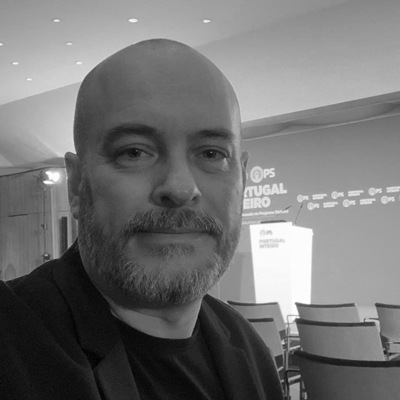Welcome Fernando Amorim to MeLCi Lab!

We are thrilled to welcome Fernando Amorim to MeLCi Lab. Originally from Brazil, Fernando is pursuing a PhD in Communication and Activism and a Master’s in International Relations at Universidade Lusófona. His research focuses on the impact of technology on society, particularly artificial intelligence in the judicial system, and the dynamics between the Global South and Western Civilization. Fernando brings valuable expertise in human rights activism, migration, and extremism. He enjoys family time, political advocacy, and role-playing games outside academia. We look forward to his contributions to our research and community. Read on to discover more in this interview with him:
What is your area of research?
My research focuses on the intersection between communication and activism. Specifically, I aim to understand the dispute between the Global South and Western Civilization in shaping the New World Order. I also specialise in international relations and the impact of technology on society, particularly artificial intelligence in the judicial system.
Where are you from, and what is your academic background?
I’m originally from Brazil but moved to the USA in 2004 and then to Portugal in 2018. My educational background is in Political Science and Electoral Studies from Universidade Lusófona (CUP). I am pursuing a PhD in Communication and Activism and a Master’s in International Relations.
What have been the main moments of your academic career so far?
As an early-stage researcher, I have yet to experience my key moments. So far, my key achievements include the publication of my monograph on Artificial Intelligence and Law, which offered a critical analysis of AI’s impact on the US judicial system. Another significant milestone has been my paper on Surveillance Capitalism versus the Surveillance State, which explores the implications of the Fourth Industrial Revolution on privacy and democracy. These works mark important early contributions to law, technology, and political science.
How do you feel about joining our research laboratory?
I am thrilled and honoured to join MeLCi Lab, as it presents an outstanding opportunity to contribute and expand my research in a collaborative environment.
What motivated you to join this particular laboratory?
I was particularly excited to join the MeLCi Lab because of its focused projects on human rights, activism, migration, and extremism. These areas closely align with my research interests and personal convictions. The lab’s commitment to exploring these critical social issues through a multidisciplinary approach presents a unique opportunity for me to contribute my political science expertise, communication skills, and activism. This will also help me expand my understanding and impact in these vital areas.
What are your expectations regarding your role in the laboratory?
I look forward to leveraging my expertise in political and technological analyses to develop research that collaboratively influences public policy and social practices.
Do you have any specific goals you would like to achieve during your stay here?
My goal is to work on projects integrating technology and social activism and contribute to building a body of knowledge supporting social change.
Are there specific research areas or projects you want to collaborate on within the laboratory?
I am especially interested in projects that delve into the dynamics of disinformation and the impact of emerging technologies on political and social practices. My experience in analysing the interactions between technology and global politics, as demonstrated in the book chapters I am working on, can greatly enhance the laboratory’s projects.
How do you see the potential for collaboration with other laboratory members?
I am particularly interested in the YouNDigital project at MeLCi Lab, which focuses on the relationship between young people, news, and digital citizenship. I am also eager to collaborate on upcoming projects within the lab that align with this research or are related to the recently concluded Read Twice project (which ended earlier in 2024). The goal is to explore further and address the complex connections between politics, technology, information, and their societal impacts.
Besides your work in the laboratory, do you have any other professional ambitions for the future?
I work in the laboratory, but my main career goal is to become a university professor and researcher. I am passionate about teaching and dedicated to advancing political science, communication, and technology research. This career path will enable me to share my knowledge and insights with future generations and continue contributing to academic discourse and societal progress.
What advice would you give to other new researchers entering the field?
Always stay curious and open to learning from all disciplines. Collaboration and effective communication are the keys to impactful research.
Outside of research, what are your hobbies or personal interests?
When I’m not researching, I prioritise spending quality time with my wife, Monica, and our two children, Luca and Nina. I’m also actively involved in activism, particularly through student associations. I have a strong interest in political advocacy and party politics. Additionally, I enjoy playing role-playing games and board games, as they provide a creative escape and an opportunity to delve into complex narratives. Reading is another passion; it helps me continuously broaden my understanding of the world.
Is there a message you would like to share with the lab community or our social media followers?
I am thrilled to collaborate with you all in expanding the frontiers of academic knowledge. Together, we can make important discoveries that will enhance our understanding of global dynamics. Let’s innovate and inspire change!